Have you ever heard of “poverty tourism” or “slum tours”? Slum tourism is a type of tour in which people from wealthy countries visit impoverished areas through a tour operator. Tour companies might offer packages to Cape Town, South Africa, or to Mumbai, India, to visit communities like the one pictured in the movie Slumdog Millionaire. A tour guide also might take you through the winding shanty town of Kibera, a large slum in Nairobi, Kenya, to see how people live.
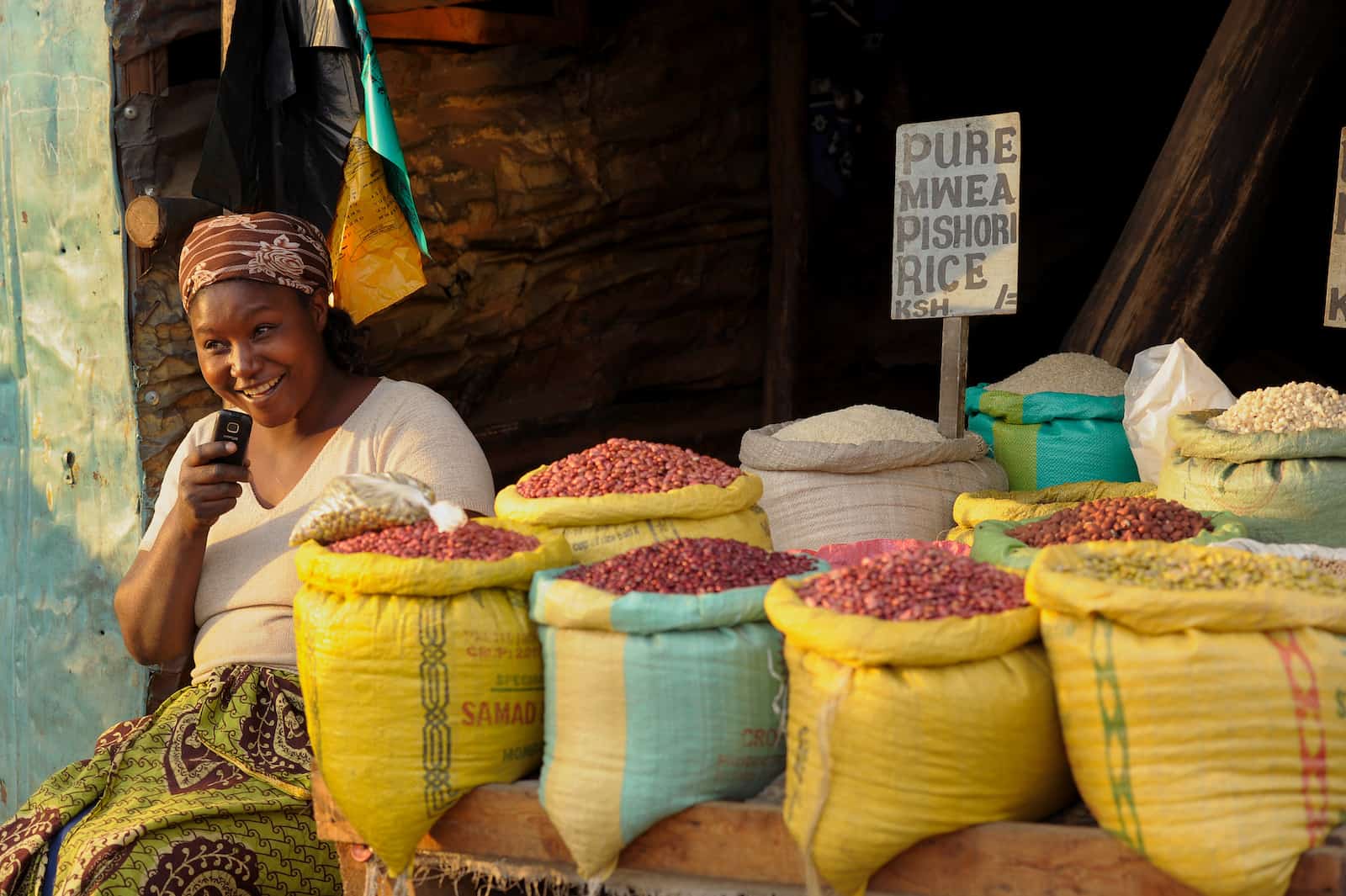
A woman sells beans and grains on a street in Kibera, where some people visit for “poverty tourism.”
Are these tours just a harmless way to gain insight into what it’s like to live in poverty? In this article, Sidney Muisyo, who leads Compassion International’s programs around the world, explains the underlying and deeply flawed messages that slum tours are based on and can further ingrain in us. He also explains how you can visit an impoverished community in a way that is mutually honoring and beneficial.
Recently, I read an article from a news channel in the UK regarding “slum tourism,” also known as poverty tourism. My home country of Kenya has one of the biggest slums in the world, Kibera, which is now becoming a tourist destination for some foreigners.
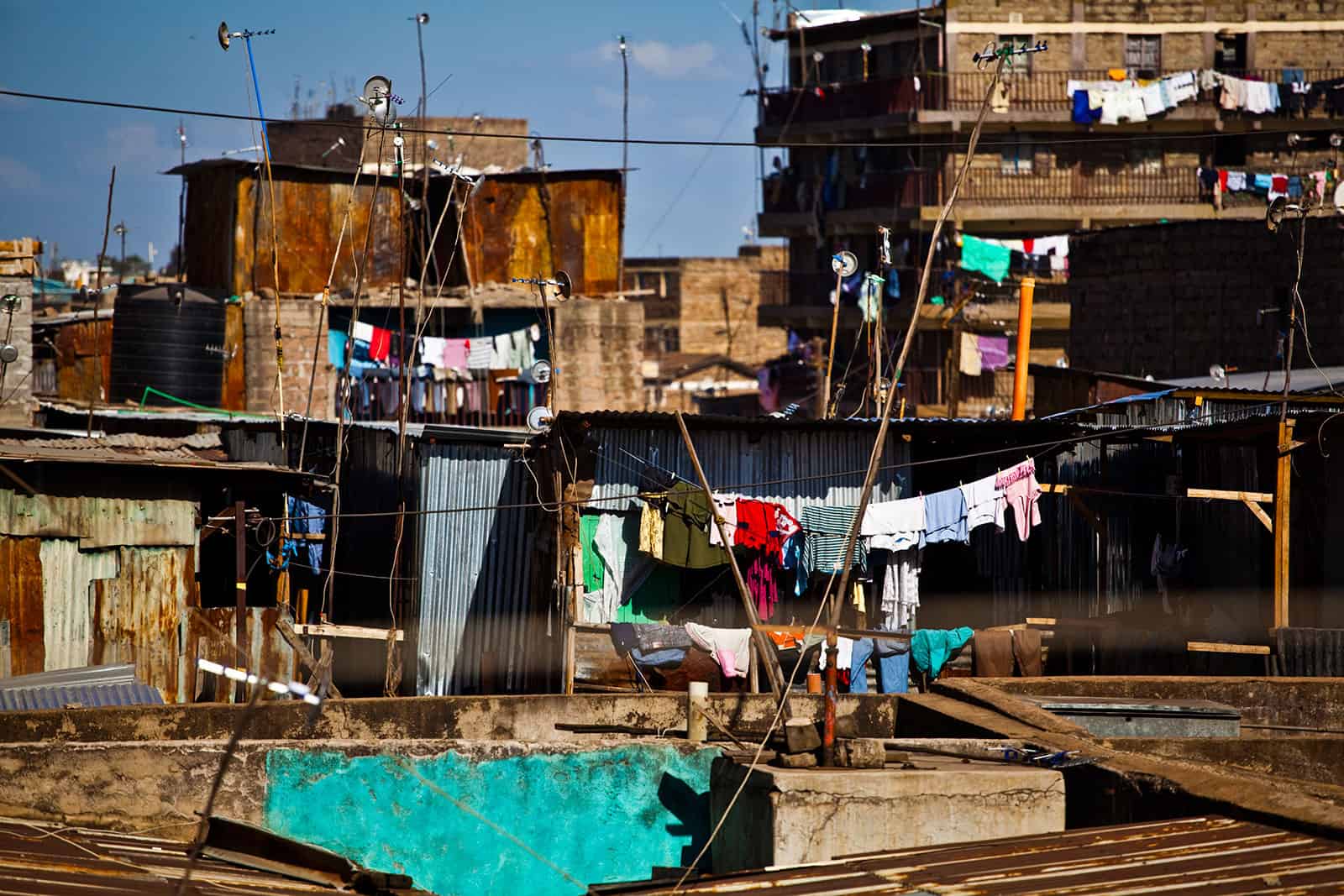
In poverty tourism, as reporter Jamal Osman says, “People’s lives are on display, providing ample opportunities for tourists to grab a few photos and go.”
The article brought up some thought-provoking points, both from the foreign tourists and the locals. I don’t know the tourists’ motives, but if it was truly just a moment for them to see how another group of people lives, and then not be changed by that experience, I can only regret a wasted journey.
MUTUAL DISAPPOINTMENT
You see, in its worst expression, poverty tourism is not just the exploitation of one group — the poor — it is the exploitation of two groups, those visiting and those visited.
It is often easier to claim that the “Westerners” are exploiting the poor; but what is not as obvious is that the poor are also exploiting the Westerners.
It is a shared deceit and dysfunction.
The Westerners may come into a slum or village thinking, “I know exactly what’s needed to help you.” At an unconscious level, it may even be that by seeking to help the poor, there is a sense of one feeling good and self-justification compared to those who do nothing.
Perhaps helping the poor becomes some sort of absolution from some “Western” guilt. Or perhaps the motivation is not so misguided.
On the other hand, those being exploited have learned the game and will play it to get what they can. They will assume the posture that believes, “You are right, I’m here and I’m helpless. I need you to tell me what I need, so long as you provide it.”
Both postures are deceitful, and both are at the root of the often common mutual disappointment with one another. And no surprise there, since both postures are, after all, illusions.
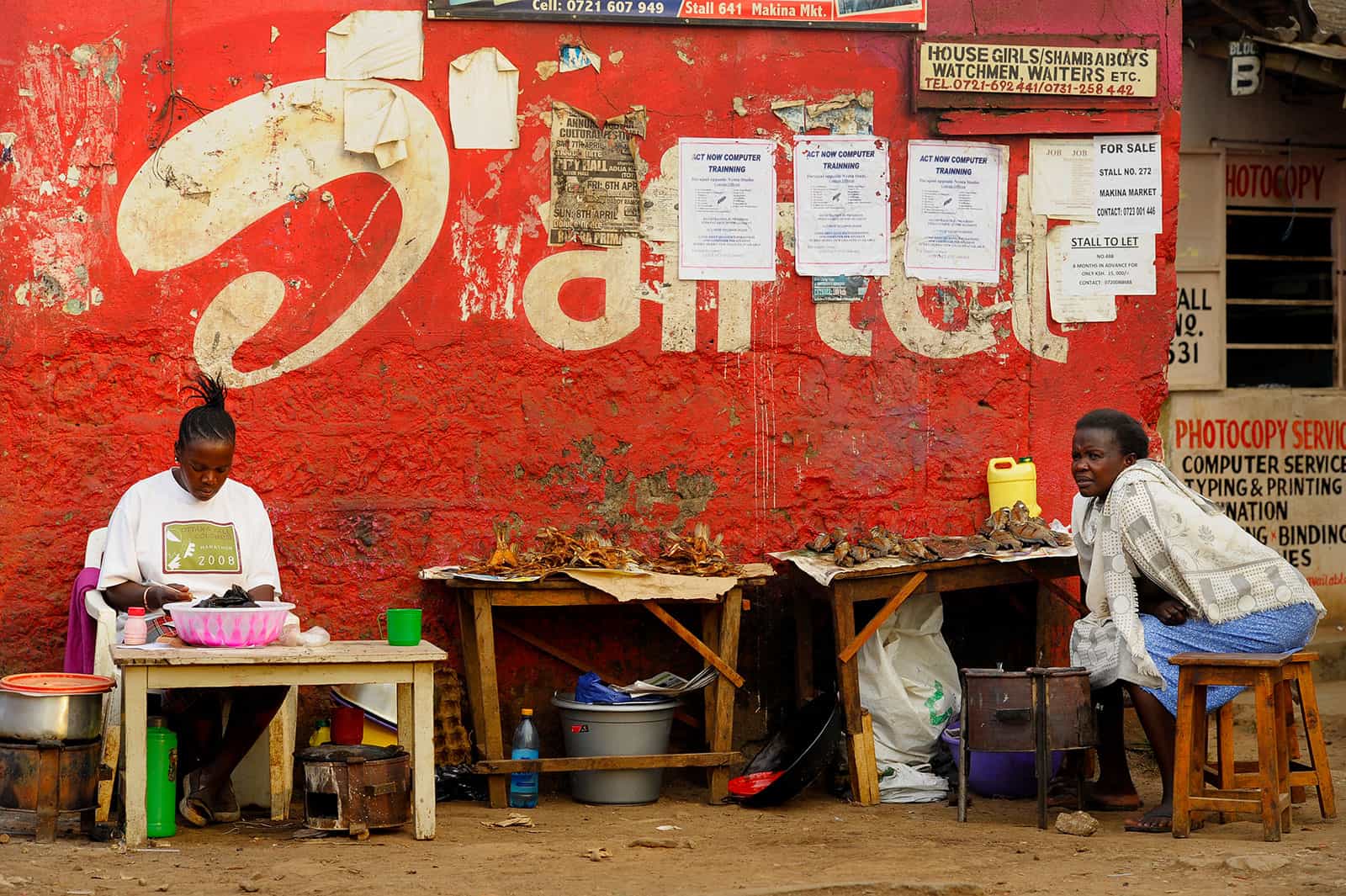
DOUBLE EXPLOITATION
Not only are the ‘tourists’ there to stare, but by presuming to know what the poor need instead of engaging in respectful dialogue, they’re dehumanizing them twice by making the fatal assumption that the poor cannot think for themselves, when in fact they are highly capable and often extremely resourceful.
Poverty tourism commits the mistake of making the issues concerning poverty simplistic.
Equally true is that the poor that agree to engage in the game deceive themselves by denying their own sense of dignity and capacity to architect their own solutions. Ultimately, they engage in exploitation of the “rich Westerners” and tragically, fail in owning the solutions to their circumstances.
POVERTY TOURISM VS. PILGRIMAGE
Poverty tourism does not require the onlooker to engage. When taking a tour, you can look and watch, but you won’t necessarily be changed.
And yet there is a different way to enter an encounter with the poor. It is what I see take place at Compassion all the time when sponsors visit the children they are sponsoring; it is a pilgrimage.
When your desire is to see, to know, to touch, to understand— with an openness of mind and heart — that is a pilgrimage. And like all pilgrimages, you cannot remain the same at the end of such a journey. Pilgrimages lead you to reflect on your own identity and purpose.
A pilgrimage leads to changed and restored relationships. It’s a result of not visiting the poor, but visiting with the poor. It is grounded in and results in a sense of God’s desire for individual and relational wholeness.
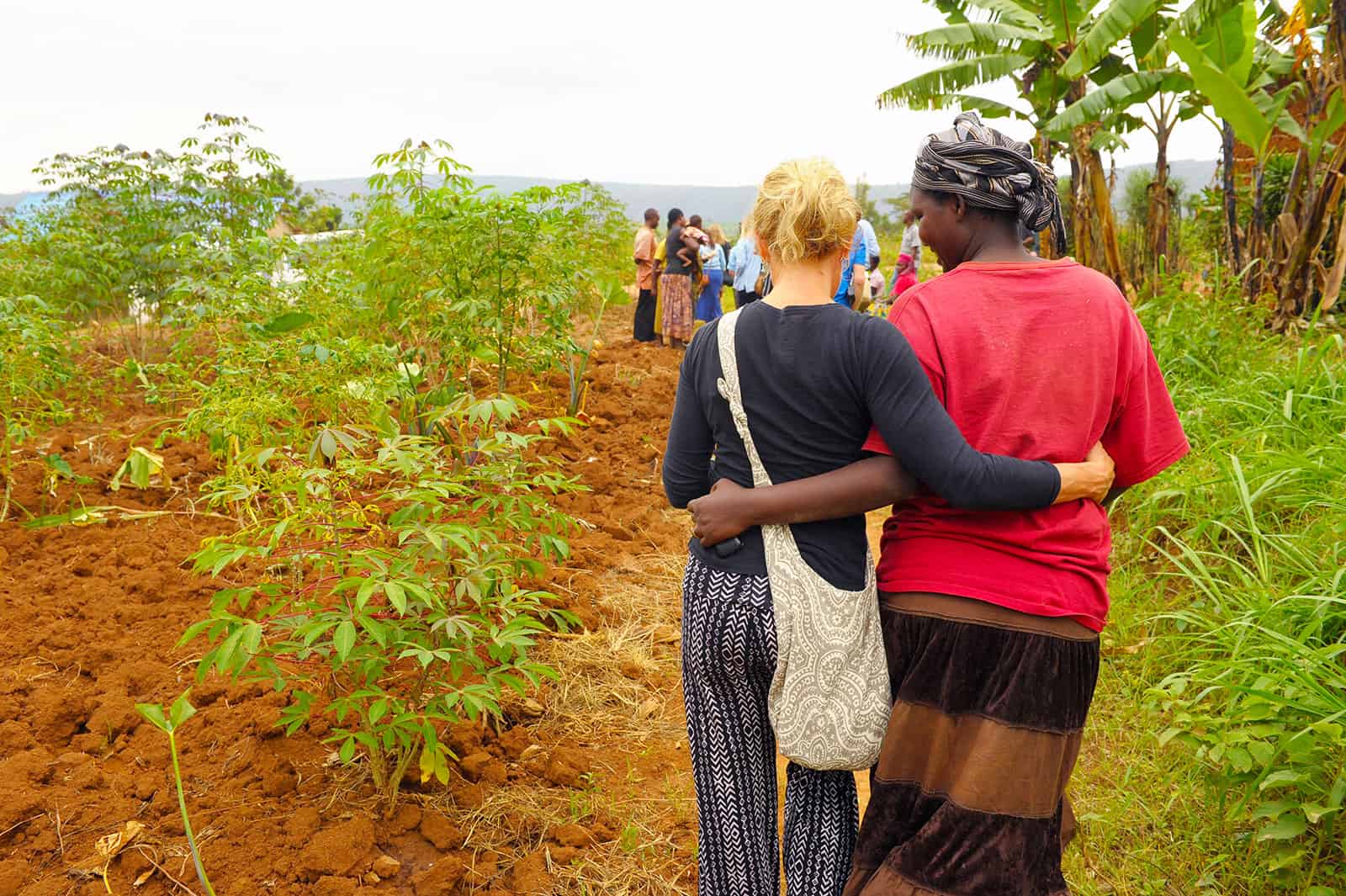
A VISIT WITH A NEIGHBOR
If we chose to look at the poor as invitees to God’s kingdom, then we begin to capture the essence of Jesus’ own understanding of His calling to the poor, and we begin to understand why the Good News is good and new to the poor.
At another level, we begin to see the poor as “our neighbor”.
In Africa at least, you cannot not visit with your neighbor. Who loves their neighbor and doesn’t want to visit them?!
Visiting with the poor becomes another expression of the love of God and of community. And this idea is deeply ingrained in God’s desire and gift for wholeness.
I think of the child whose sponsor travels thousands of miles to meet them, see where they live and give them a hug. The sponsor who says to the child, you matter. The child begins to think, “My sponsor values me enough to travel and see where I live. I must matter!”
The pilgrimage reaffirms the dignity of the poor instead of robbing them of it.
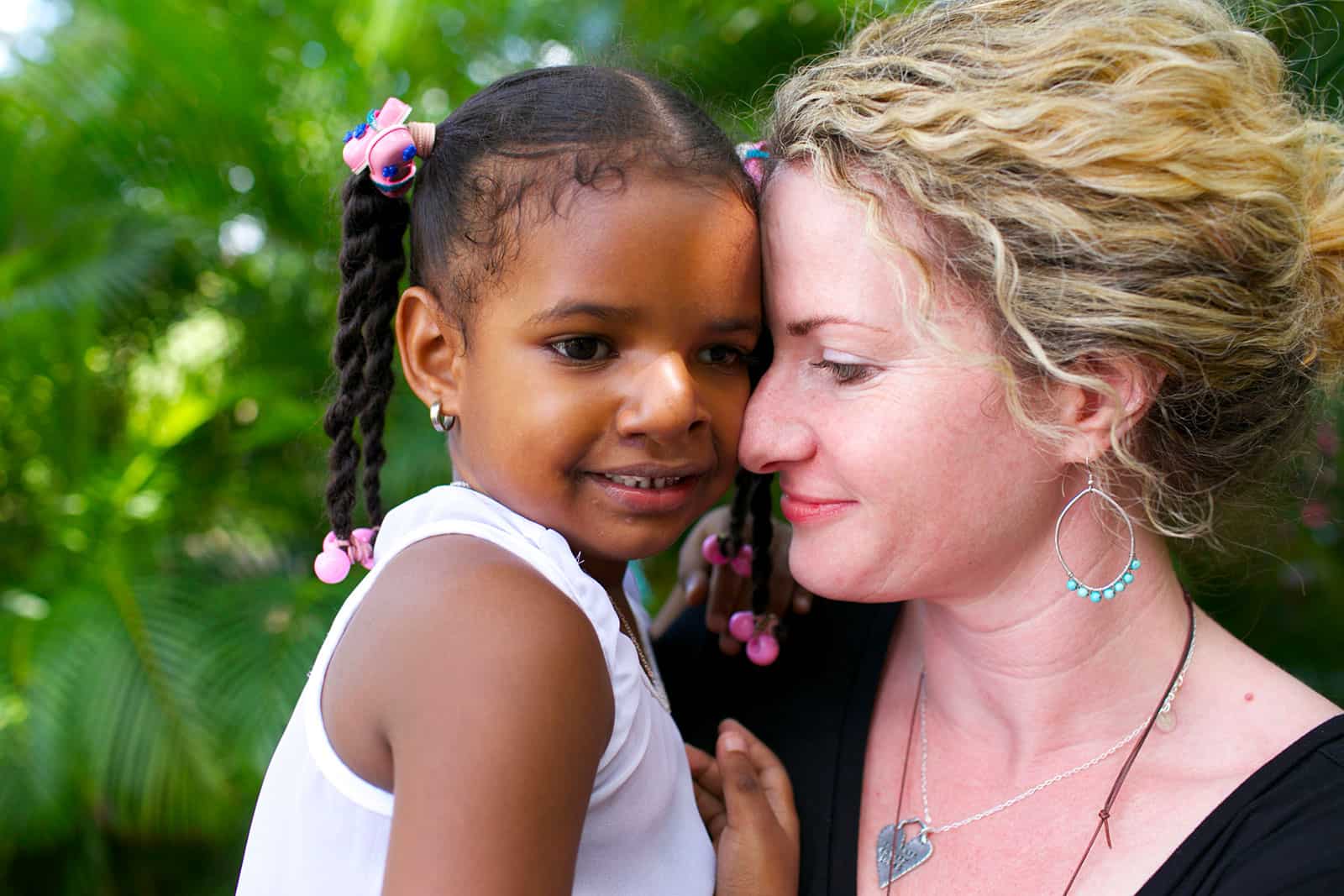
MUTUAL UNDERSTANDING
Pilgrimage reminds all involved that they are part of God’s Kingdom, His global community. It is the dignity of sharing the experience of a cup of tea.
In Kenya, a host always serves something to eat or drink. To decline is considered rude. So when someone from the Global West comes to visit, one of the most dignified acts they can bring is to share a cup of tea.
Even a sip or a taste along with gratitude for the gift speaks volumes. It’s the shared-ness of that moment that transcends poverty tourism.
It’s a mutual embrace of life as it can be.
Truly visiting with the poor results in a mutual understanding that while you and I may be in vastly different economic circumstances, we both recognize we are on a journey.
This recognition leaves both parties empowered and in restored relationships based on truthful perspectives and not on mutual deceit.
Here at Compassion, we’re not interested in contributing to poverty tourism. Rather, we want to provide opportunity for pilgrimage for those who sponsor that results in transformed lives and changed relationships.
Learn more about how you can take a pilgrimage to meet the child or teen you sponsor and see firsthand how the local church is empowering the youth in their communities.
If you don’t already have a loving relationship with a child in our program, make the decision today to be the catalyst for lasting change in the life of a child in poverty!
This article was originally published June 25, 2015.







9 Comments |Add a comment
This needs to be a TED talk. Seriously.
So true. So powerful. Thank you for your words of wisdom and encouragement. This should be featured in a philanthropic event.
The literature has expounded my knowledge on the subject and has made me continue to appreciate the challenges within the communities that we serve in.great article
Great article. Written very nicely. I will prefer poverty tourism rather than pilgrimage. I have been to Rwanda the last 2 summers and you are going to love it. It’s the most beautiful place I have ever been, I have met with wonderful people their..
This is a great article. Thank you for writing it is such a clear and simple way.
I lived in Kibera with the Wambua family for a couple months in the fall of 1988. There were very few North Americans or Europeans in Kibera at the time, and I remember how astonished people were when I got of busses or matatos each late afternoon and walked off toward the house in Kibera! I’ll say this about the people I lived with and their neighbors and the other people I met in Kibera back then: they were mostly very intelligent, some of them were even intellectuals. I mean, they liked poetry, literature, architecture, and had opinions about philosophers and theology and all that. I remember a group of formidable women I came to know in Kibera who were all friends, and were working on a sort of income-generating project. The local Kenyan and foreign organizers of the project were so horribly condescending and patronizing to these women. It was horrible, but although these women recognized (and were unhappy about) the way they were being seen and treated, they were also thankful for the opportunities and help they were getting from these project organizers. Anyway, I’ve stayed in touch with a couple of my old friends from Kibera, including the Wambua family, and they are doing well now. One friend who grew up in Kibera is a horticulture expert working at a sort of agricultural extension office in Nakuru. One thing people should always remember is that a significant number of the people living in the slums are wiser and as intelligent (or more intelligent) than the wealthy foreign tourists who may come to gawk at the material poverty of the slums.
Sidney, I love this article. I am getting ready to lead a group from my church to Rwanda to visit our sister parish there. We have always stressed that relationship is the primary purpose of our visit and we know that changed lives on both sides is what will result if we let Christ lead the entire experience and do with it what he wants in all of our hearts. I have read this several times, shared it on Facebook and will make sure our group reads it too. Thank you for taking the time to share your perspective. Deeply grateful.
Amen, and amen again! Great article, Sidney. May the Lord use it to open eyes, hearts, and new relationships.
This was such an excellent article and I love the perspective! Thank you for sharing. Grateful!